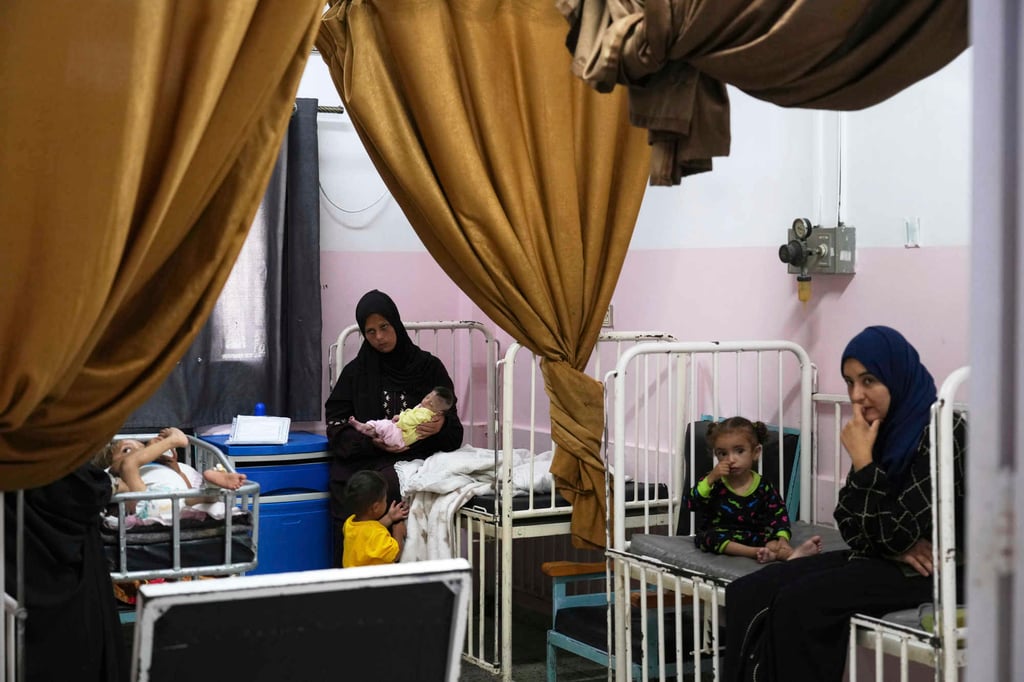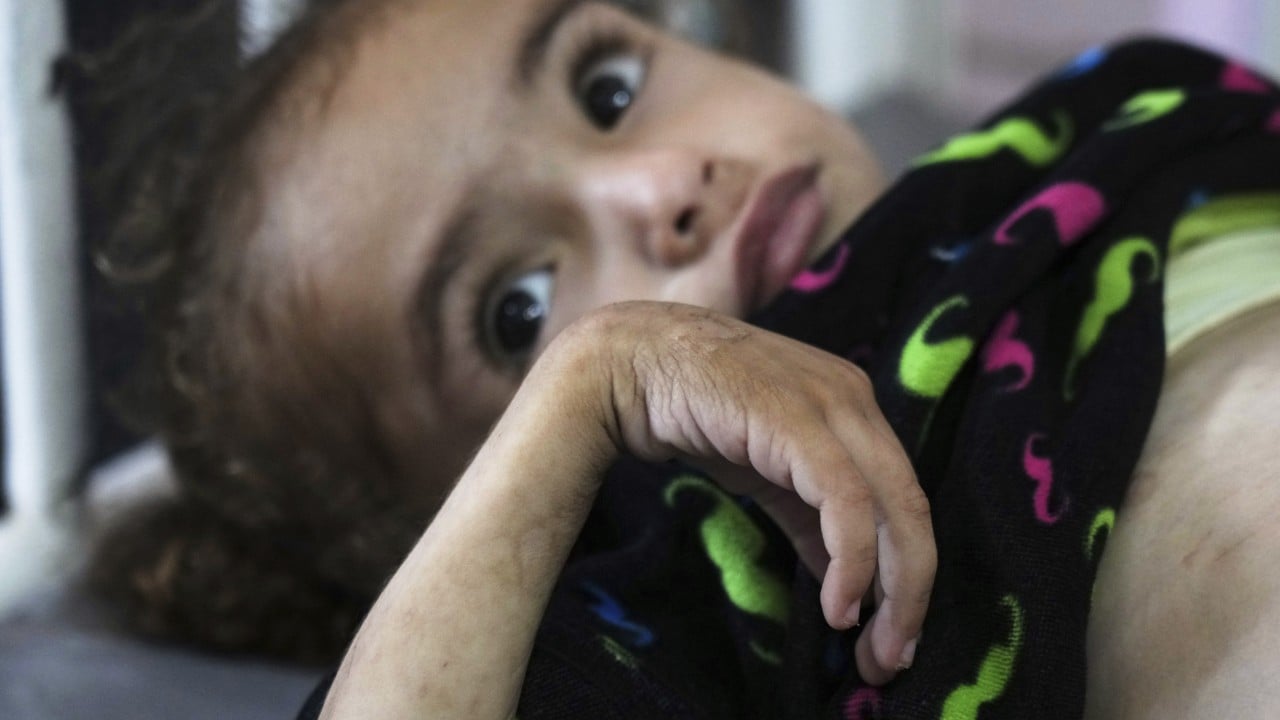Published: 2:33pm, 23 May 2025Updated: 2:40pm, 23 May 2025
Grabbing her daughter’s feeble arm, Asmaa al-Arja pulls a shirt over the 2-year-old’s protruding ribs and swollen belly. The child lies on a hospital bed, heaving, then wails uncontrollably, throwing her arms around her own shoulders as if to console herself.
Advertisement
This was not the first time Mayar has been in a Gaza hospital battling malnutrition, yet this 17-day stint has been the longest. She has coeliac disease, an autoimmune disorder that means she cannot eat gluten and requires special food. But there was little left for her to eat in the embattled enclave after 19 months of war and Israel’s punishing blockade, and she cannot digest what is available.
“She needs diapers, soy milk and she needs special food. This is not available because of border closures. If it’s available, it is expensive, I can’t afford it,” her mother said as she sat next to Mayar at Nasser Hospital in Khan Younis.
Mayar is among the more than 9,000 children who have been treated for malnutrition this year, according to the UN children’s agency, and food security experts say tens of thousands of cases are expected in the coming year.

Experts have also warned that the territory could plunge into famine if Israel does not stop its military campaign and fully lift its blockade – but the World Health Organization said last week that people were already starving.
Advertisement

